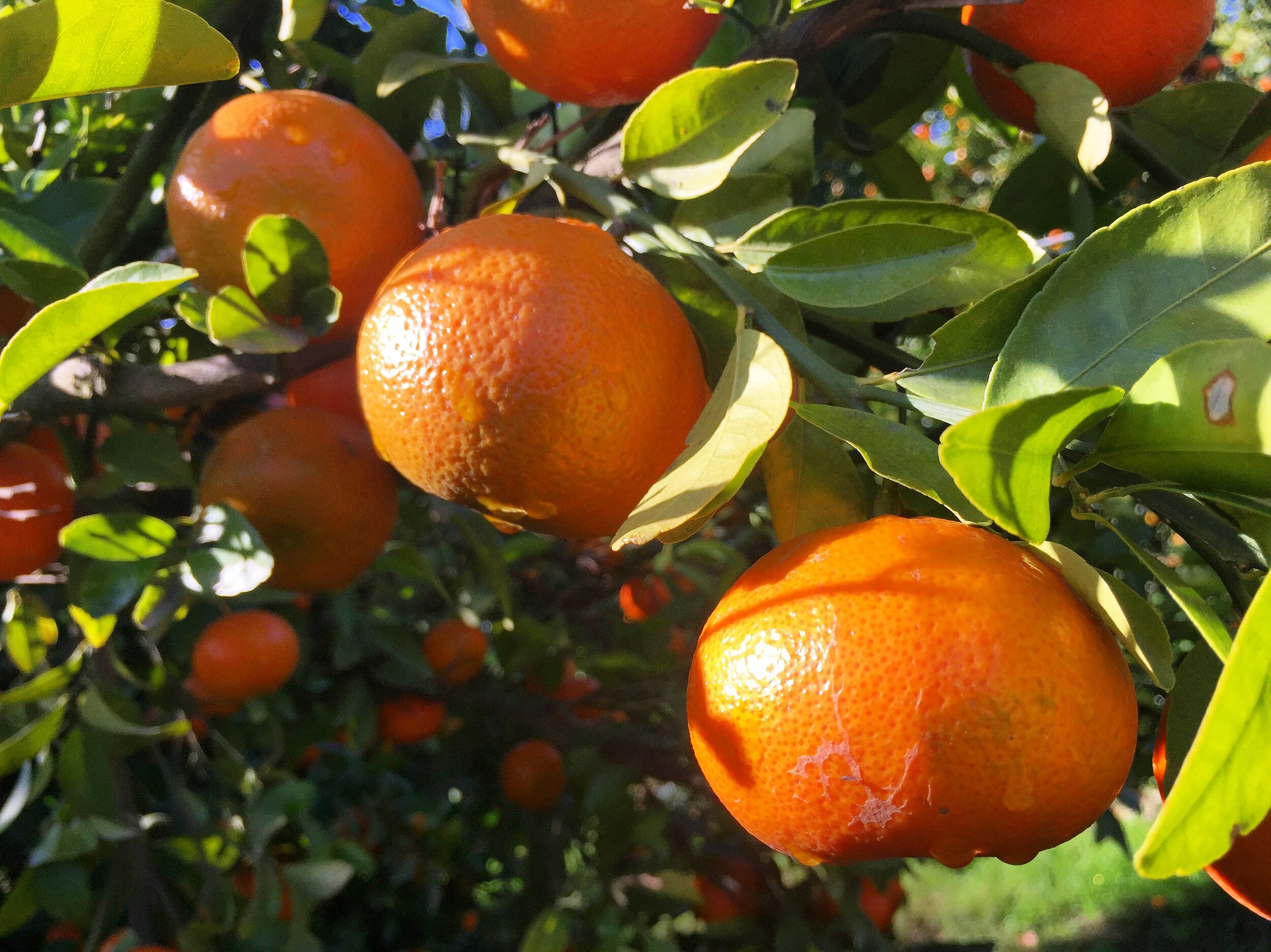
Wild River Organic Mandarin Orange
The oldest (and largest) trees growing at Wild River today are Owari Satsuma Mandarins that were planted along the bank of the Yuba River in 1964 by our patriarch and matriarch, Gordon & Shirley Noland. In more recent decades, we have cultivated citrus groves along the riparian corridor, which we retain as a natural habitat buffering our farm from the river. In addition to Owari Satsumas, we also offer Okitsu Wase Satsumas, Clementines and W. Murcott mandarins, expanding our citrus season from fall through spring.
W. Murcott
Sweet flavor with a tangy punch.
Tight, thin skin.
Seedless variety.
Late season maturity.
Owari Satsuma
Sweet citrus flavor.
Loose, thick skin.
Seedless variety.
Early season maturity.
Origination
The mandarin is a small citrus tree (Citrus reticulata) native to South-Eastern Asia and the Philippines where it is widely used in traditional Chinese medicine. In 1805, the tree was introduced to the West when two varieties from Guangzhou (Canton) China were taken to England. Cultivation began in the U.S. around 1850. Various cultivars and crosses between the original mandarin and other citrus fruits have since resulted in a number of unique varieties.
These little nutritional powerhouses are a sweet source of vitamin C, antioxidants and dietary fiber. Mandarins are easy to peel by hand, making them a convenient, healthy snack that is especially popular among children.
Ripening & Storage
Wild River Organic Mandarins are left to ripen on the tree and picked as they gain color. Firmer mandarins should be stored at room temperature and should not be kept in direct sunlight. Citrus fruit keeps best if refrigerated when ripe and will typically store for 1-2 weeks.
Nutritional Information & Health Benefits
Mandarin oranges are low in calories and naturally fat-free. They are an excellent source of vitamin C, providing up to 80% of recommended daily intake, and help strengthen immune system functioning. Mandarins are high in the compounds beta-carotene, lutein and zeaxanthin, which protect the eyes and may prevent age-related macular degeneration. One cup of mandarin segments contains 1.8 grams of dietary fiber, approximately 5% of the total daily intake recommended for men and 7% for women. Mandarin oranges are also rich in the cancer-fighting flavonoids hesperetin and naringenin, and contain antioxidants that may be beneficial in lowering cholesterol levels.







